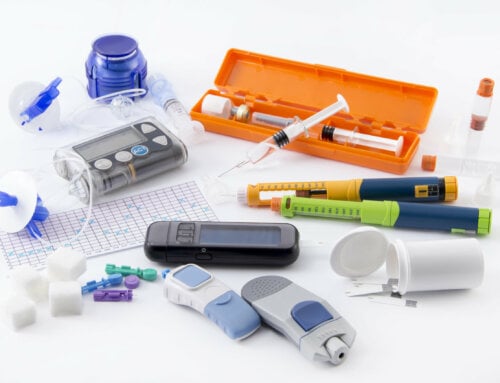You joined the neighborhood gym months ago and now you think it’s a good idea to attend. You push, push, push yourself to go and there you are in your “gym get-up” (aka oversized T-shirt and shorts) ready to work out. You look around at all the cute girls in their fancy “work-out gear” with tons and make-up and perfume, flirting with the cute guys and you think to yourself, why am I here? Then you spot an older gentleman who is kind of hot, focusing on his exercise, and that gives credence to your decision to stay.
You proceed to the exercise machines where you first eye the stairclimber and think this is what your rear-end needs to perk it up a bit. You get on, but before you start climbing, you think about your fasting blood sugar – 95 mg/dL and the breakfast you ate – a bowl of cereal, milk and fruit – and when your medication is going to peak – RIGHT NOW!
You jump off the machine before you start to break a sweat – or even climb one step for that matter – and you run to the bathroom and check your blood sugar. 85 mg/dL! Are you kidding? It’s going down……….You think to yourself before you head to the smoothie bar to decide between a vanilla almond milk with peanut butter smoothie or a blueberry, banana, kiwi smoothie with extra whey protein and flaxseed meal to take you through the exercise – this is NOT a good time to exercise! But you’re here anyway, so you relax with your delicious and sweet, but slow digesting, smoothie, knowing you made a better choice by throwing in the protein and fiber to slow down fruit sugar from blasting in your bloodstream and you’ll be ready to go in about 30 minutes.
Thirty minutes pass and you test your blood sugar again and now it is 120 mg/dL. Mission accomplished! You get some water to take with you and start climbing. Sixty minutes after drinking and sweating you take a break and re-check your blood sugar. You haven’t worked out this hard in years and you feel so out-of-shape. Oh no, the sugar is now 250! What happened? Oh yeah, you remember that diabetes educator telling you that your liver stores glucose and will overcompensate in some instances – like now!
When your blood sugar is dropping it protects you by sending out glucose into the bloodstream. The bad part is that it is overly generous… your liver did such a good job that now you have high blood sugar! You drink more water to hydrate yourself and learn from this incident. Obviously, your body can not exercise with blood sugar in the low hundreds when your medication is peaking. Next time, you will exercise at a different time or ask the doctor to adjust your medication(s). Perhaps your doctor can cut back on your medication, suggest that you take it at different times, or you may not even need it on those exercise days!






Leave A Comment